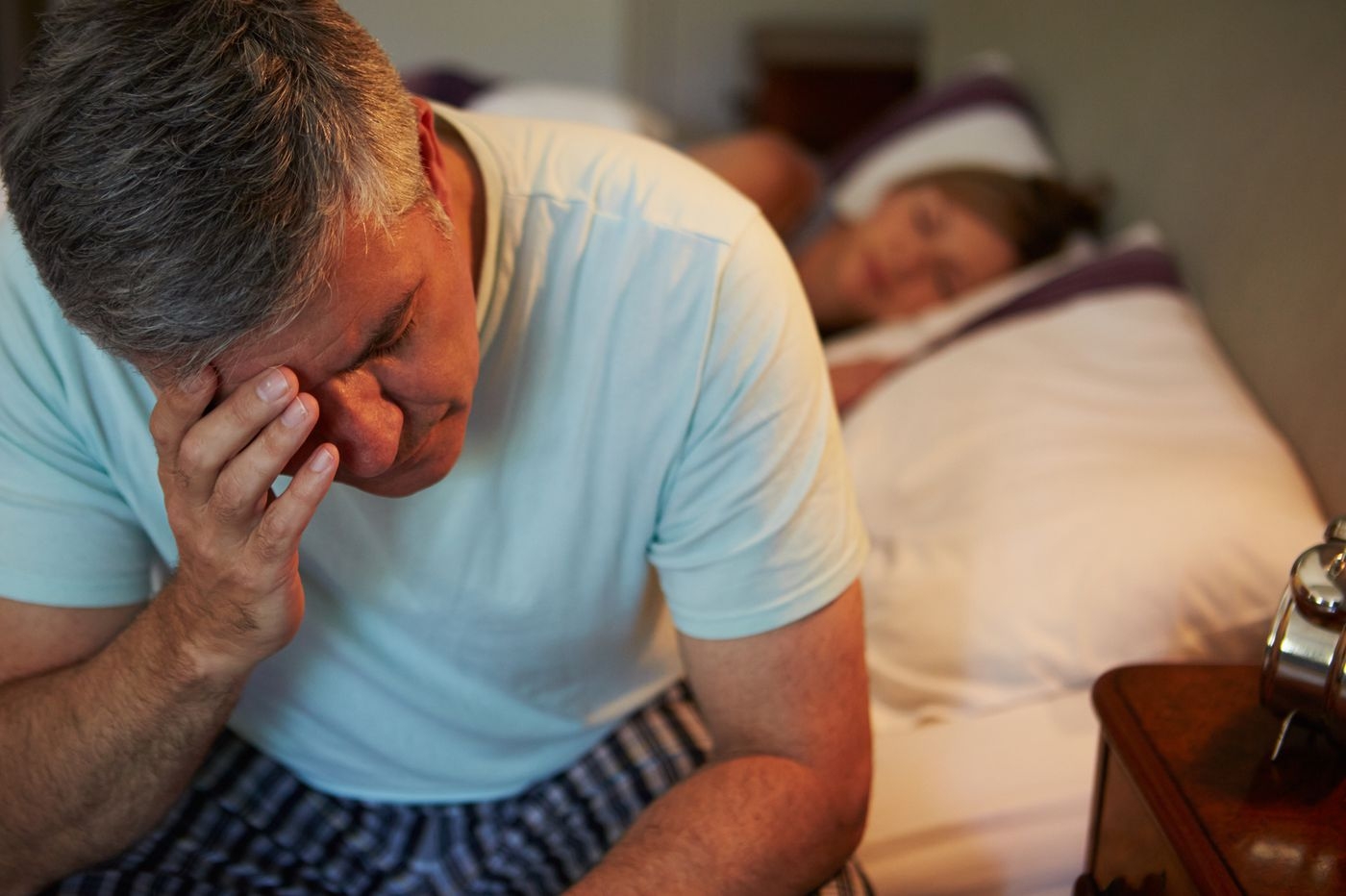Published by The Philadelphia Inquirer on April 1, 2020.
 There’s nothing like a dark, quiet bedroom to send a stressed-out mind down a rabbit hole of worry, and the coronavirus is giving us all a new set of possible catastrophes to feast upon.
There’s nothing like a dark, quiet bedroom to send a stressed-out mind down a rabbit hole of worry, and the coronavirus is giving us all a new set of possible catastrophes to feast upon.
As your head hits the pillow, or maybe when you stir at 2 a.m., you start to wonder: Does that little sore throat mean you’re doomed? What if that guy who stood too close at the grocery store had the virus? Can your father or grandfather — or you — survive this?
It goes on and on, and pretty soon you’re worried that you’ll never get to sleep, and you’ll feel horrible the next day. Plus, you need sleep for a strong immune system, so staying awake could make you sick. This kind of thinking is a recipe for insomnia.
“Six months from now, we’re going to have a much larger population of adults with insomnia, and certainly children,” said Amy Sawyer, who has a doctorate in nursing at Penn Nursing and studies health behaviors related to sleep.
Other experts were not as sure that insomnia would soon go viral but did say they’re hearing that patients, as well as friends, coworkers, and family members, are having more trouble than usual getting to sleep or staying asleep in these anxious times.
“Sleep is one of the first things that goes,” said Phil Gehrman, a psychologist at the Penn Sleep Center. “I describe sleep as our barometer.”
We asked Sawyer, Gehrman, Michael Grandner, who directs the Sleep and Health Research Program at the University of Arizona’s College of Medicine, and Bilal Saulat, a neurologist who is medical director of sleep medicine at Tower Health Medical Group, how to fight back against the mostly irrational thoughts that pop into your head as soon at it hits the pillow. The solutions, they said, start long before bedtime.
You need a schedule
Our schedules help set our circadian rhythms, the internal clock that helps us know when it’s time to wake and sleep.
Now that so many of us are either working at home or home without work, our schedules have gone haywire. Grandner says there’s one group that’s loving this: the natural night owls who hated getting up early to commute and take kids to school.
“They’ve removed a major stress from their morning,” he said. Many others, though, are unmoored to their normal routines. “You have people who are just playing video games all day,” Grandner said. “Their body is having a hard time knowing when to be awake and when to be sleeping.”

